Impact of Covid-19 on eCommerce Businesses

2020 has been a challenging year for everyone. The outbreak of the COVID-19 pandemic affected almost all sectors including education, finance, business models, medical treatments, and the most important sector like e-commerce. This outbreak increased the scope of digitalization in every aspect including consumer shopping behavior. E-commerce developed like never before. The standardized lockdown around the world urged the need for many changes like work from home, online business, and online shopping behavior. Consumers switched from shops, supermarkets, and shopping malls to online shopping portals for the purchase of products, ranging from basic to branded items. Before discussing the impact of Covid-19 on e-commerce, you must first understand what is electronic commerce (e-commerce).
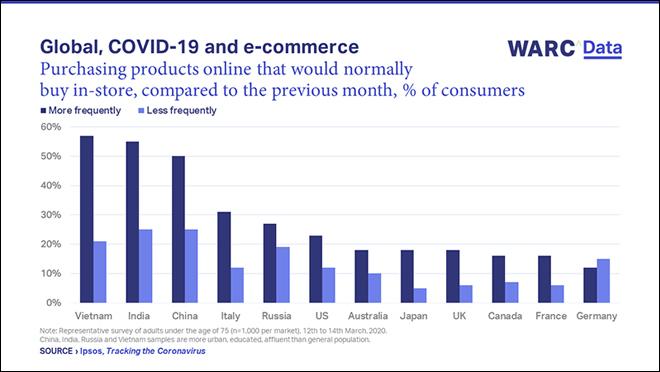
E-commerce is the term that broadly includes purchasing and selling raw material, products, services through an electronic medium which is called (Internet). This e-commerce is done by the consumer, retailer, and business. When we specifically mention e-commerce retail, it is defined as an exchange of goods and services between an online retail company and consumers. There are different types of e-commerce such as business to business (B2B) like Cisco, Alibaba, business to consumer (B2C) like Amazon, Walmart, and consumer to consumer (C2C) like eBay, Myntra.
How Did the Pandemic Shape eCommerce?
Before this pandemic condition, several factors pushed the e-commerce market like growth in internet users, rising in mobile users, online launching of products, and increased awareness on safe online shopping. Not only this, the rebates, exclusive offers, and rebates offered by businesses attracted more online customers. But all these factors help in improving the e-commerce market at a constant speed.
However the whole situation changed after the outbreak of Covid-19. The business owners witnessed the ever-seen upsurge in the consumer demand for products. Online shopping increased during covid-19. The social distancing, and staying at home further pushed the consumers for electronic shopping. We can say Covid-19 accelerated e-commerce.
The needs for daily usage products like toiletries, groceries, sanitizers, and eateries increased whereas the demand for casual shopping including clothes, footwear, and other accessories remains stagnant. One of the important changes that we encountered post-Covid-19 was digitalization. The retailers who used to sell products in their shops have adopted the method of digital selling through websites or other portals. The transactions become online with a secure payment gateway.
Impact of Covid-19 on the e-commerce market
The e-commerce industry report around the world is categorized based on different products including electronics, healthcare beauty & personal care, and others. The COVID-19 outbreak affected all these segments due to the uncertainty in supply and demand. The factory closures in China and the US also lead to variations in e-commerce. The pandemic outbreak largely affected the electronics products industry due to a shortage of supply from China. According to the IndustriALL Global Union report , China is the largest producer of electronics and its parts globally.
E-commerce around the world including North America, Europe, Asia-Pacific has been affected by the COVID-19 pandemic. China’s giant e-commerce service provider Alibaba has struggled to sustain growth rates during an economic slowdown in its domestic market and is faced with the uncertainty of the coronavirus outbreak.
Let’s have a look at interesting covid 19 ecommerce statistics.
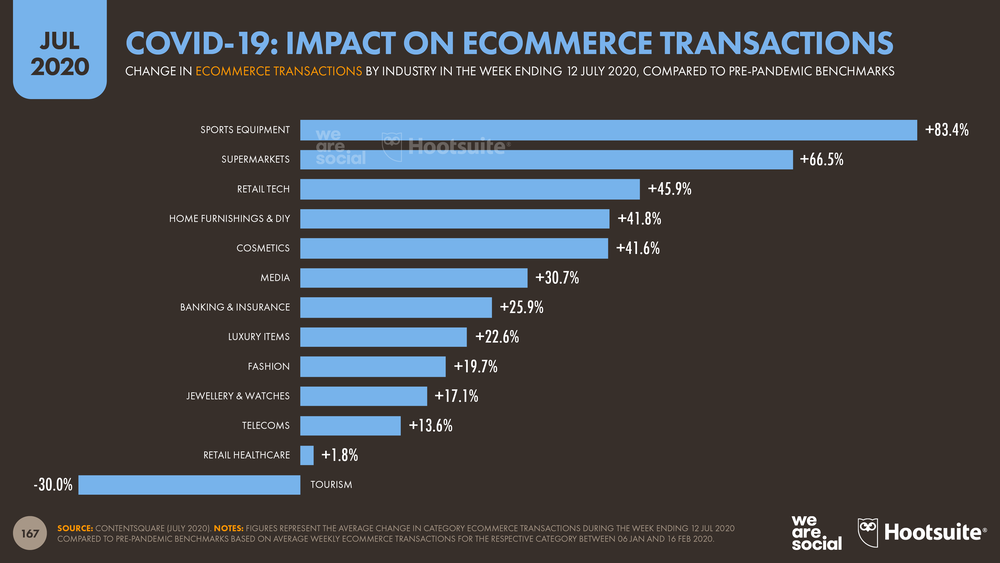
Image source: datareportal.com
The above image depicts the impact of ecommerce transactions in different industries during the Covid-19 pandemic situation. The purchase of sports equipment rose by 83.4 percent. The media industry rose by 30 percent in the media industry and the retail healthcare industry profit just rose by 1.8 percent. There is a negative effect on tourism by a 30 percent shortfall.
The impact of covid-19 on online shopping
The COVID-19 has reformed the online shopping behaviors, according to the survey, entitled “ COVID-19 and E-commerce ”. In this survey around 3,700 consumers were examined in nine emerging and developed economies. The study also discovered that consumers in the developing economies have made the shift to online shopping. The changes will have a lasting impact on the economy.
This pandemic has transformed the way consumers use e-commerce and digital solutions. The majority of respondents say that following the pandemic, they shop online more frequently and are more dependent on the Internet for accessing news, health-related information, and digital entertainment. This survey depicted that online shopping increase during Covid-19.
Also, the COVID-19 pandemic has transformed the world towards the digital world. The General Secretary of the United Nations Conference on Trade and Development, Mukhisa Kituyi, mentioned that changes in online shopping around the world urges countries to adapt to the changes even after pandemic recovery.
Covid-19 and eCommerce Growth
The survey conducted by UNCTAD and Netcomm Suisse eCommerce Association focused on the Covid 19 e-commerce statistics depicts that the online purchases rose by 6 to 10 percent in all product categories.
The diagram shown below depicts that the biggest profit-making industries are Information and Communications Technology (ICT)/electronics, pharmaceuticals, education, cosmetics/personal care categories, etc.
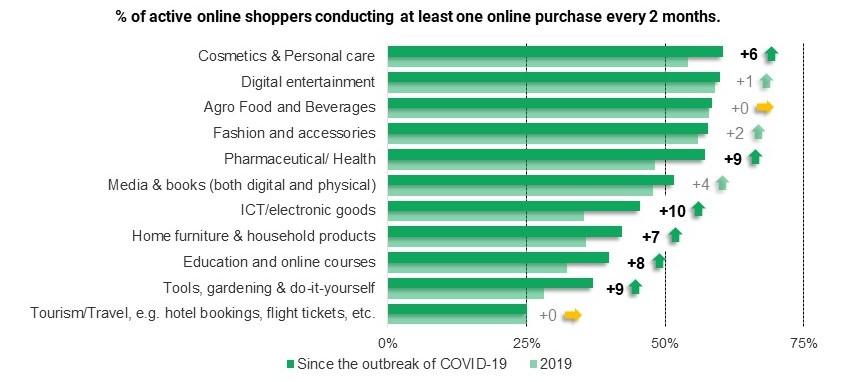
Moreover, As per study conducted by UNCTAD and Netcomm Suisse eCommerce Association , in collaboration with the Brazilian Network Information Center (NIC.br) and Inveon, presented the Covid 19 e-commerce statistics depicting that the online purchases rose by 6 to 10 percent in all product categories.
Rising eCommerce Trends During and Post Covid-19
The Covid-19 pandemic leads to the downfall of retail sales. Before Covid, digital commerce has been outpacing retail growth. As a result, services like buy online, pick up in-store (BOPIS) has been steadily increasing, but aside from grocery and profitable retailers, curbside pickup has been a successful path for most retailers. BOPIS and curbside pickup have been changed in today’s scenario as the must-have survival capabilities for retailers, whether big and small.
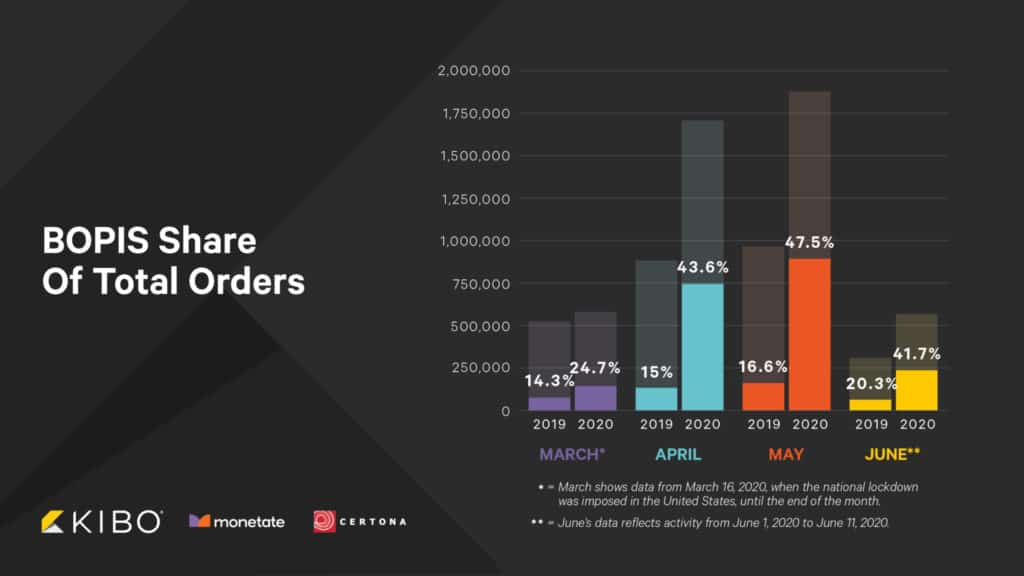
Kibo, a leader in cloud commerce, announced that the company’s retail clients attained the 563 increase in BOPIS orders during the COVID-19 pandemic. BOPIS, including curbside pickup, has been getting popular, but the social distancing regulations have affected some of its factors. Kibo encountered the rise in all online ordering of 194% at the peak.
The Industry Impact of CoronaVirus:
There is a basic shift in the purchasing habits of people during this scenario. This shift in purchasing behaviour has been felt in different segments like fashion, medical care, jewellery, automobiles and home decor. How these segments are presented below:
Fashion industry
The prevailing pandemic situation affected the purchasing habits of patrons. The frequent purchasing habits of people changed. Customers are no longer purchasing clothes or accessories. This might be the outcome of lockdown and curfew that restricts people to spend money on some other products than clothes. Some of the brands and historic department stores have closed due to low sales. Face masks have been one of the trending fashion styles during this situation. The face mask has transformed into a fashion statement in no time.

Image Source: The Glossary Magazine
Medical Care Products
The demand for medical care equipment like sanitisers, gloves, and all hygiene care products have increased. The inflated demand for these products has been faster than they have been produced and restocked. At every touchpoint, people use sanitisers and sprays to disinfect the virus. The whole scenario leads to the unexpected growth of demand.
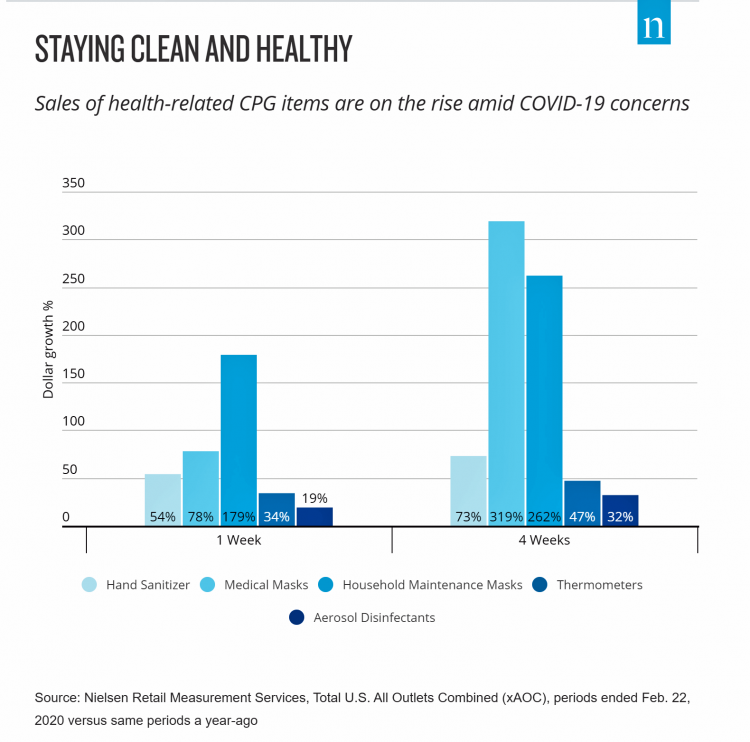
Gems and Jewellery industry
Like the fashion industry, the impact of Covid-19 on gems and the jewellery industry are not positive. Delayed marriages, the restriction on guest list, shortfall of shows and events lead to fallback demand. The fall in the gold rates also affected the whole economy. People are less interested in buying these products as they are usually not purchased online due to its ultimate value.
Automobiles
The sale and demand for cars rose with high speed. People who are afraid of getting infected try to buy their cars. The sale of new vehicles rose as people are afraid of using public transport like buses and railways.
Home Decor
The Covid-19 pandemic has a positive impact on the sale of the home decor industry. People during the lockdown try to renovate their homes. They try to learn more things in gardening indoor and outdoor. People purchase small things that add to the beauty of the house. Some people have the passion for buying new things, and some purchase them to renovate the home. In both cases, the sale of home decor increases.
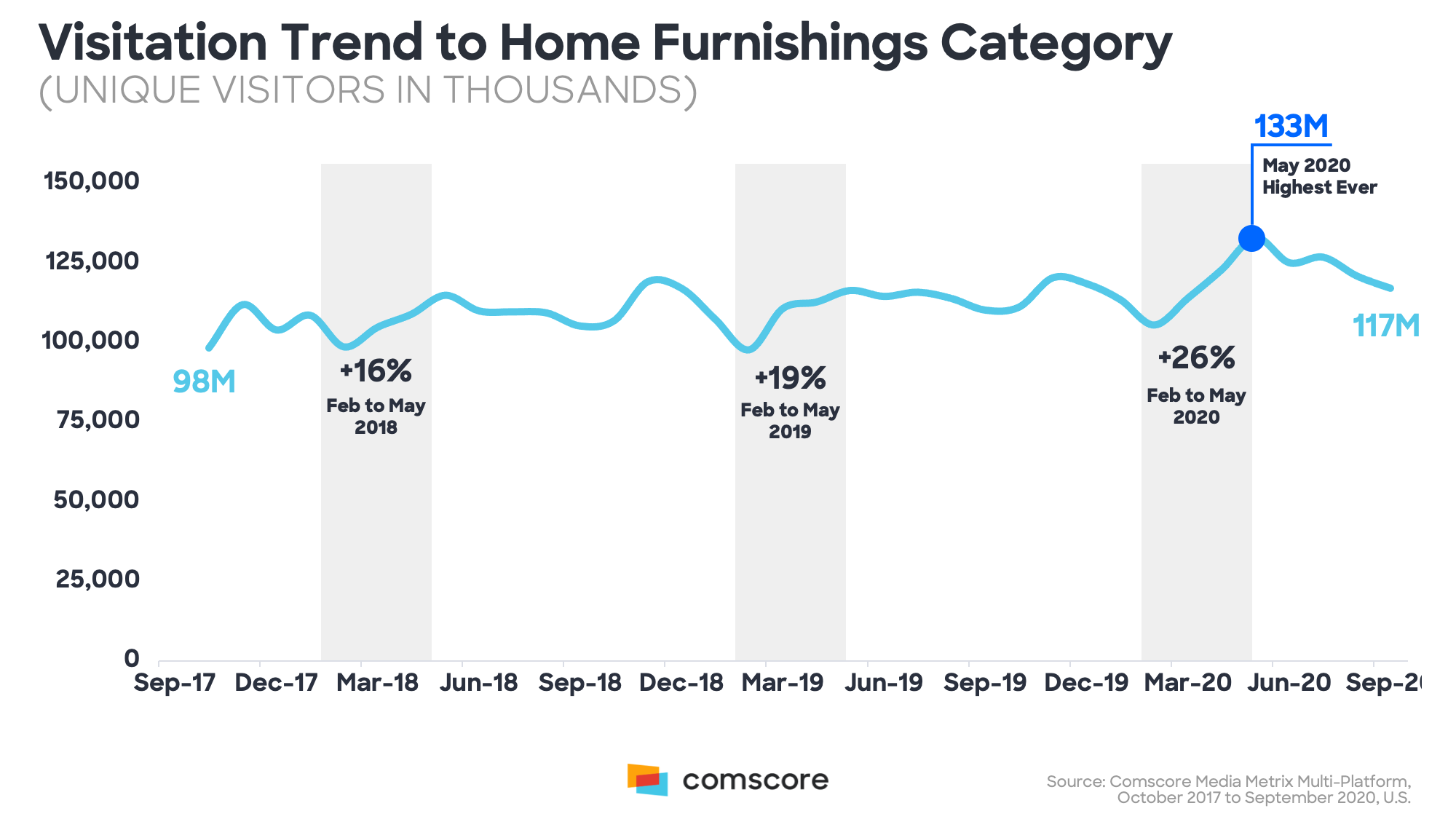
How to optimize your new e-commerce business during this pandemic situation
Online shopping increased during Covid-19. Instead of going out, people opt to buy things online. E-commerce involves more than just a brand name and online product selling. Searching for the right audience, niche of the product, and customer contact are all important to decrease unnecessary costs and products that suit your customer base.
If you are launching a new e-commerce business it is necessary to consider different steps that can help in getting success.
- 1. As online shopping has become more prominent since the pandemic, you can do market research and choose a niche product that is not available in other online stores. This will give you a distinct advantage over other online competitors. Having a niche product line helps you in decreasing your expenses and gives you a direct focus over your generic competitors. Filtering the market also allows you to search the sections that are operated by competitors.
- 2. In the online e-commerce business, there is an availability of an established inventory blueprint to manage the sudden rise in the demand for products and services in the country. Possessing the right inventory blueprint allows you to store, summarise, organize and track the orders. The e-commerce platforms are available with built-in features to manage inventory efficiently.
- 3. In this ecommerce pandemic scenario, chatbots helped in business transformation and supported retailers to improve shopping experiences. The Global Market Insights , depicts that the market size for chatbots around the world will increase to 1.3 billion dollars by 2024. The
- 4. During this pandemic condition the e-commerce orders are processed through cash-on-delivery payment platforms. So you can include, the pre-pay cash-on-delivery option to decrease impulse orders and to convert visitors to customers. It also helps in mitigating unnecessary costs, increasing traffic, and supervising the expenses of your business.
- 5. You need to do a thorough analysis of competitors, as the e-commerce platform is congested with competitive businesses. You need to understand the reality of the market. It also acts as a rectifying tool and helps you to improve the eCommerce checkout process.
The Positive Impact of Covid-19 on e-commerce
According to the GlobalData reports, Covid-19 will have a long-term positive effect on eCommerce. Online retailers experience the situation of orders from customers frequently for their households and necessities. The report also depicts that the consumers are more focused on abandoning physical stores due to social distancing norms.
According to Luke Gowland, the Thematic Analyst at GlobalData, COVID-19 has urged a boost to the e-commerce sector, and the biggest beneficiaries are online grocery retailers. Supermarkets experience an upsurge in demand for home grocery delivery due to increase in online shopping due to covid-19. The report also predicts that 10 percent of shoppers of both genders purchased food items over the Internet, following the Covid-19 outbreak.
More companies are focused on their supply chains, and how technologies including cloud computing, 5G, IoT, and blockchain improve the efficiency and cost-effectiveness of the business.
The Negative Impact of Covid-19 on e-commerce
The worst-affected e-commerce retailers in the industry are online travel agencies and online estate agents. The COVID-19 pandemic had a negative impact on the online travel industry with a decline from $744.7 billion in 2019 to $595.8 billion in 2020, or 20 per cent. The restrictions in the commutation and cancellation of flights lead to the downfall of the travel and tourism industry. The hospitality industry has been deeply affected during this pandemic condition.
The restrictions in hotel stay and tourism lead to huge losses. The ride-sharing also falls prey to this condition. The demand for shared mobility falls with the practice of social distancing. The carpooling and ridesharing companies like Lyft and Uber have experienced a fall in bookings by 80 percent. The clubs, community gathering halls, gyms felt the sharp wave of negative flash due to the restrictions in public gatherings.
Future of e-commerce After Covid-19
The Covid-19 pandemic situation has altered the whole e-commerce experience. The majority of industries benefited from this change and some industries had negative effects. It is more likely that the online shopping trend will prevail like this in the future due to easiness and comfortability. The older generation will choose online shopping in the future. There is no doubt that the global pandemic has changed the retail ecosystem process from offline-to-online sales and this will continue even after the launch of physical retail stores. The upcoming companies will also focus on digital marketing for their business.
During this pandemic situation, the retailers are focused on launching their online ecommerce store. Hire our certified Magento 2 developers to start your eCommerce journey online . They will help you in the checkout of your customers to get the maximum on your return of investment (ROI).
Conclusion
The impact of Covid-19 was transformative for retailers. The whole concept of purchase and sale has become digitized. This also urged retailers to change the business behavior tactics. Amidst all this, starting or adapting to this e-commerce business is not easy. Recognizing the needs and purchasing behavior of consumers is important for retailers to upgrade the business. Acknowledging covid 19 e-commerce opportunities helps in understanding your customers needs. Retailers are adapting to the new normal. The whole concept of digitalization and innovation has occupied the market.
If you want to know more about how to digitize your business, please connect with our expert team. They will help you in every step of digital transformation.





